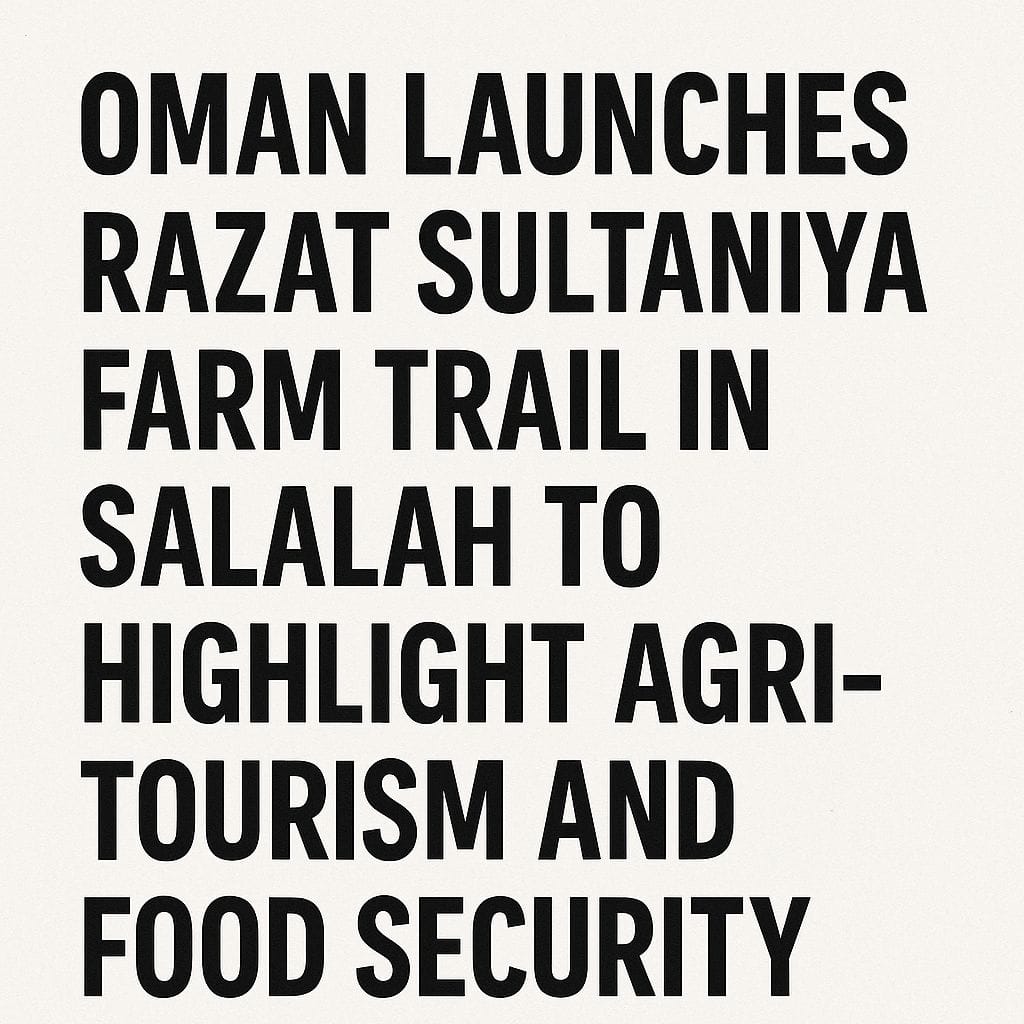Salalah, Oman — Oman is enriching its tourism landscape with the launch of a new agricultural visitor trail at Razat Sultaniya Farm in Salalah, unveiled by the Royal Court Affairs Office under the direction of His Majesty Sultan Haitham bin Tarik. This initiative elevates the farm’s mission from agricultural production to a vibrant showcase of sustainable farming, food security, and cultural immersion.
A New Chapter for Agri-Tourism in Oman
This newly inaugurated trail underscores Oman’s commitment to diversifying its tourism offerings beyond the familiar attractions of forts, beaches, and Khareef landscapes. By placing agricultural sustainability and local food production at the heart of this experience, the project aligns with national goals for economic diversification and long-term food resilience.
What Visitors Can Expect
Upon arrival at the reception area, visitors board dedicated buses guided by knowledgeable hosts who lead them through curated stops across the farm’s diverse zones. Along the trail, guests encounter tropical orchards, vegetable plots, dairy operations, and even climate-smart infrastructure and technologies integrated with traditional falaj irrigation systems. The journey culminates at an integrated visitor center complete with amenities like rest areas and informational kiosks.
Sustainable and Technical Excellence
Razat Sultaniya Farm is managed under stringent scientific and technical standards. The facility emphasizes resource efficiency, soil health, and high yields without compromising environmental integrity. This approach enables visitors to experience firsthand how modern agriculture can support ecological stewardship and productive landscapes.
Championing Food Security
Turning the farm into a public experience spotlights Oman’s efforts to build self-sufficiency in food systems. Through interactive learning, visitors appreciate how agriculture underpins national development, resilience, and community wellbeing. The trail becomes a platform for educating the public on global challenges like food security—adapted to an Omani context.
Enhancing Regional Tourism
Located in Dhofar—already a seasonal tourism hub during the Khareef rains with natural attractions like waterfalls, lush hills, and the Al‑Baleed Archaeological Park—this agritourism trail enriches Salalah’s appeal year-round. It introduces an engaging rural dimension that complements the region’s natural and cultural offerings.
Advanced Booking and Visitor Access
The trail is open to visitors starting August 18, 2025, with guided tours via dedicated vehicles. Tickets can be booked in advance through the official Razat Farm website (razatfarm.gov.om), with reservations becoming available from August 17.
Transformative Vision for Rural Engagement
The Royal Court Affairs Department plans continuous upgrades to the trail, reinforcing its role as a regional benchmark for agricultural tourism. Combining hands-on learning with cultural exchange, the initiative not only enhances Oman’s tourism portfolio but also bolsters rural economies and community cohesion.
A Strategic Move Toward Diversification
This project sits within a broader narrative of tourism evolution in Oman—moving beyond traditional cultural heritage and natural attractions to immersive, education-first experiences. By interlacing agriculture, sustainability, and visitor engagement, Oman is carving a niche in modern tourism built on authenticity and innovation.
In Summary
With the Razat Sultaniya Farm trail now open, Oman offers a thoughtful tourism experience that cultivates connections between land, history, and innovation. Visitors in Salalah can now explore a dynamic tapestry of orchards, learning stations, and sustainable practices—bringing agriculture and awareness into harmony.
Through this initiative, tourism becomes more than sightseeing—it becomes a living lesson in the future of how we cultivate land, secure food, and enrich lives. Razat Sultaniya Farm now stands as a beacon for agritourism, rural development, and immersive learning in Oman.
For more travel news like this, keep reading Global Travel Wire















